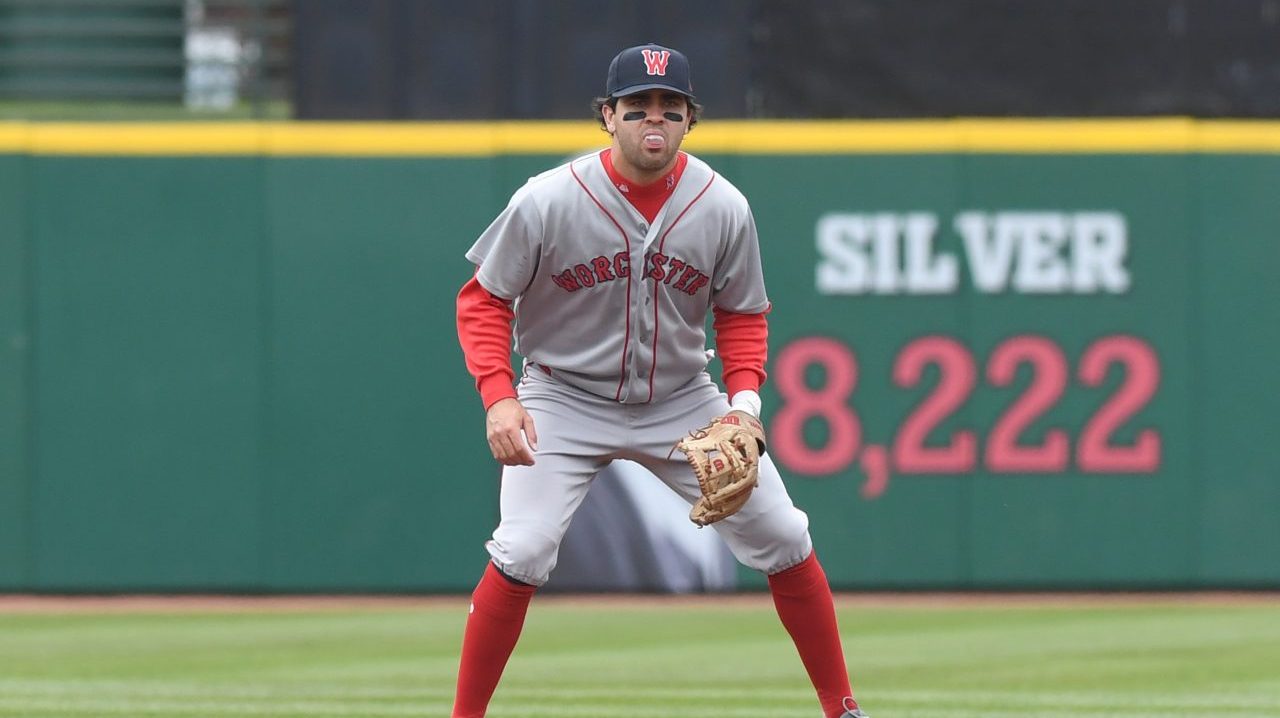Chaim Bloom discusses the role Red Sox ownership played in the decision to rehire Alex Cora. Bloom says it was important for him to know their opinion, but that ownership was ’emphatic’ it be a baseball ops decision.
Chaim Bloom knows no one believes him, but he wants to make it clear that Red Sox ownership didn't force Alex Cora on him.
The former Red Sox manager was officially introduced as the current Red Sox manager on Tuesday after a lengthy interview process that included four other finalists and a legit run at the job from Phillies data liaison Sam Fuld, but in the end, Bloom tabbed Cora, who was clearly the preferred choice of ownership.
"Did we let him know how we felt about Alex? Absolutely," said CEO Sam Kennedy. "We were honest and genuine and direct that we would be supportive of the concept of Alex coming back if he and his teammates felt that was the right thing for the Boston Red Sox, but that was their decision to make. It would be disingenuous to say that John Henry and Tom Werner and Mike Gordon, myself were not supportive or honest about how we felt about Alex."
With our All Access Daily newsletter, stay in the game with the latest updates on your beloved Boston sports teams!
Tomase: These Sox will benefit most from Cora's return
According to multiple sources familiar with the search, Bloom began the process skeptical about Cora's candidacy, but was won over during a series of conversations with the former manager, including a face-to-face meeting in Puerto Rico. The new chief baseball officer still wasn't convinced that Cora deserved a second chance, given the severity of his actions in Houston, when he was labeled the ringleader of a sign-stealing scheme that helped the Astros win the 2017 World Series.
"When we were having our meeting with Alex, I really at that point was trying to stay in the moment," Bloom said. "And as we were heading to the meeting, I was really telling myself you need to make sure you get every question answered that's on your mind, that you ask everything you need to ask, again not just for determining his fit as a manager, but also because this was a big deal, what happened. It was an event that took its toll on all of us.
E-Rod, Red Sox Twitter fired up about Cora news
Boston Red Sox
Find the latest Boston Red Sox news, highlights, analysis and more with NBC Sports Boston.
"Obviously, Alex has described that with respect to himself, but we all went through something, and there was a lot to process. I needed to make sure that I addressed everything I needed to address and that we talked about everything possible. So I tried to stay in the moment with that and then process it as we were headed back and in the days that followed."
It didn't hurt Cora's case that one of his greatest strengths as a manager -- communication -- helped him win over Bloom.
"One of Alex's great gifts, as I think anybody who's ever had a conversation with Alex Cora knows this, it's his passion for the game and how he's able to reach people and light up a room," Bloom said. "I don't think it's possible to have a conversation with Alex without feeling those things. Really, it wasn't until coming back and then processing everything and then getting down to the wire on a decision that things started to crystallize for me."
Report: Don't expect Sox to pursue Lindor despite Cora connection
As for ownership's input, here's the part Bloom knows you might not buy.
"I'm not sure anybody is going to believe me, but I'll tell you the truth anyway: I think first and foremost, it was important that they play a role," he said. "They are responsible for the entire organization. And it's obviously important, since they're responsible for the organization, for me to know how they felt, and to understand if it was something that baseball operations saw fit to do, that it was something they would support.
"If that were not the case, it would have been a very different process. So not only do I think that was appropriate, I think it was necessary really to know how they felt. And they also made sure that I know if I or baseball ops felt differently, that was OK, too. But from that point on, obviously we kept them looped in on who we were interviewing, what stage of the process we were at, but they were emphatic that it was very important that this be a baseball operations decision and they would fully back whatever decision we came to."
When the decision turned out to be Cora, ownership had gotten its man and, Bloom insisted, he had, too.


